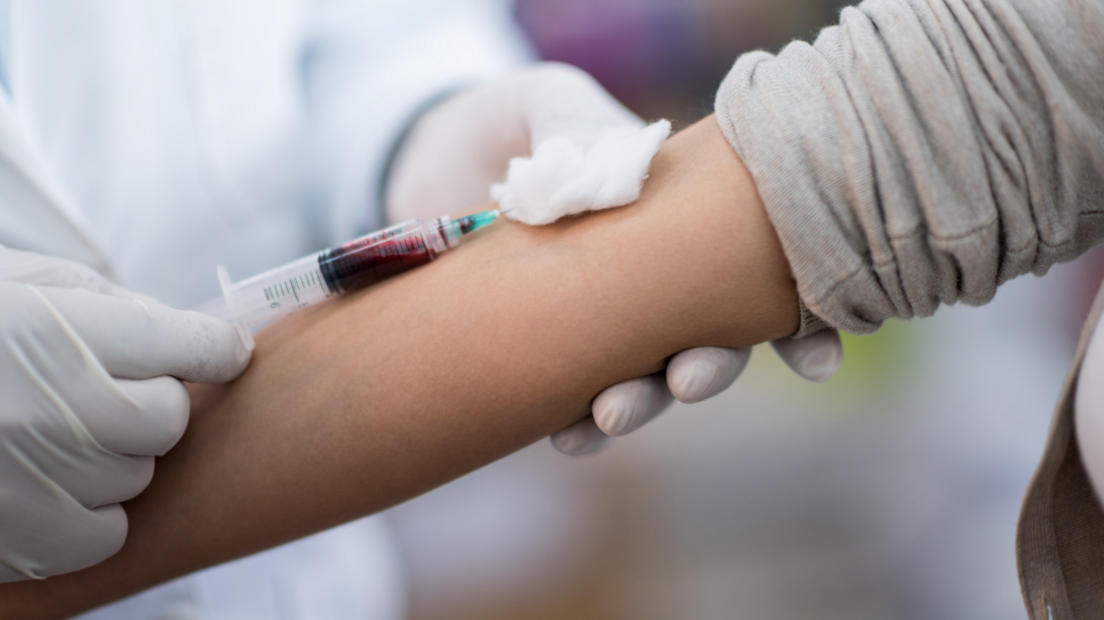Strike among NHS hospital staff reaches 100th day
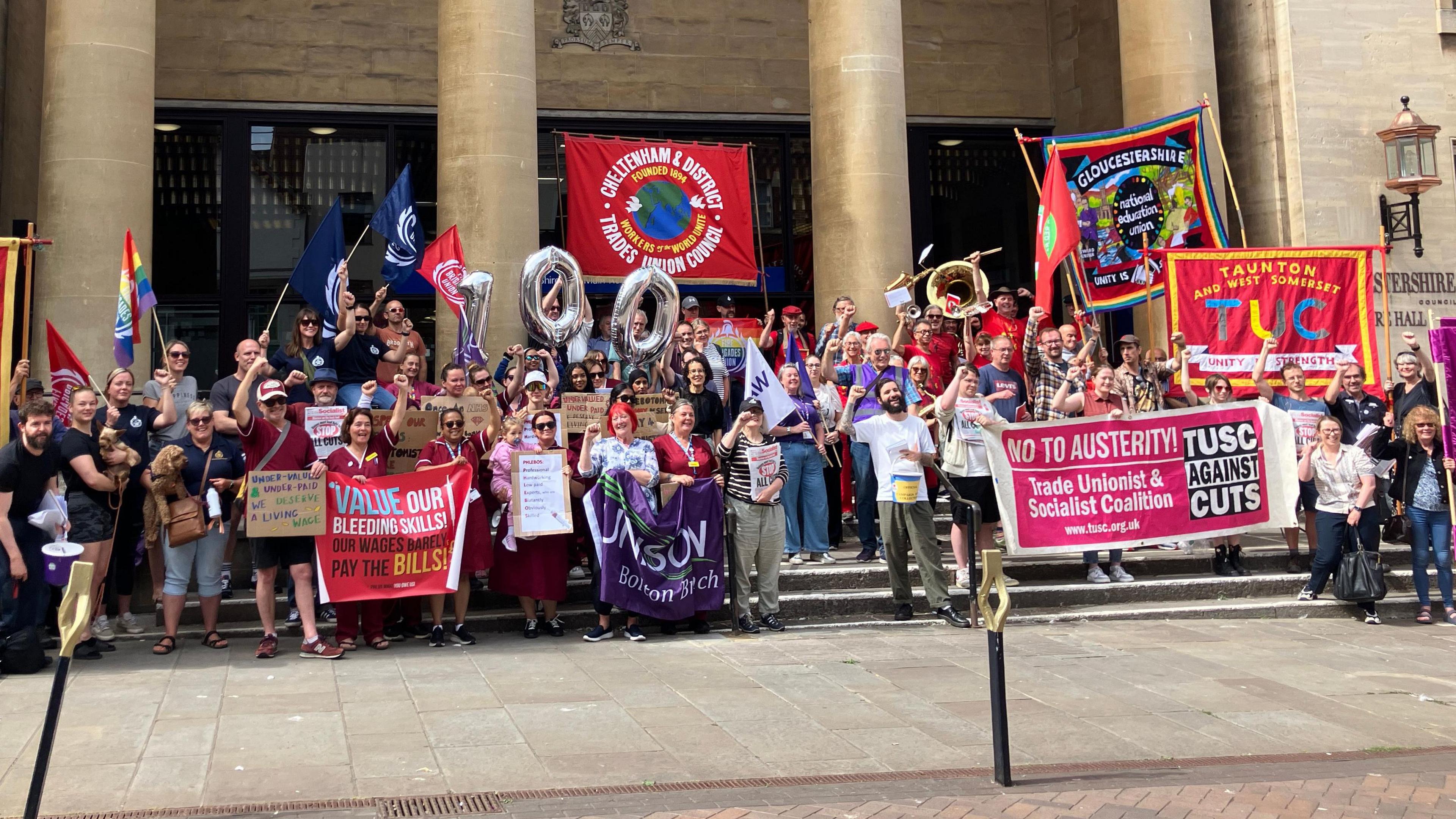
Phlebotomists in Gloucestershire began taking industrial action in March
- Published
A strike among specialist health workers is becoming one of the longest in NHS history as workers reach their 100th day of industrial action.
Gloucestershire phlebotomists, who take and handle patient blood samples, are classed as Band 2 on the NHS Agenda for Change pay scale but UNISON, their trade union, claims that is not enough for the responsibilities of their role.
Kevin McNamara, chief executive of Gloucestershire Hospitals, said he was "keen to stick within the national framework" so there is "fairness and consistency across the whole of the NHS".
But Caroline Hayhurst, one of the 37 striking phlebotomists, said: "Just because other trusts do something, doesn't make it right."
Mr McNamara said the national campaign move healthcare support workers from Band 2 to Band 3 did not include phlebotomists.
"I think it starts to undermine a pay terms and conditions framework if we start to take local decisions," he said.
Mr McNamara said he first asked union colleagues to share an updated job description for evaluation last autumn, but claimed he only received it last week.
"It is something we're committed to resolving but we have to do it in a proper process."
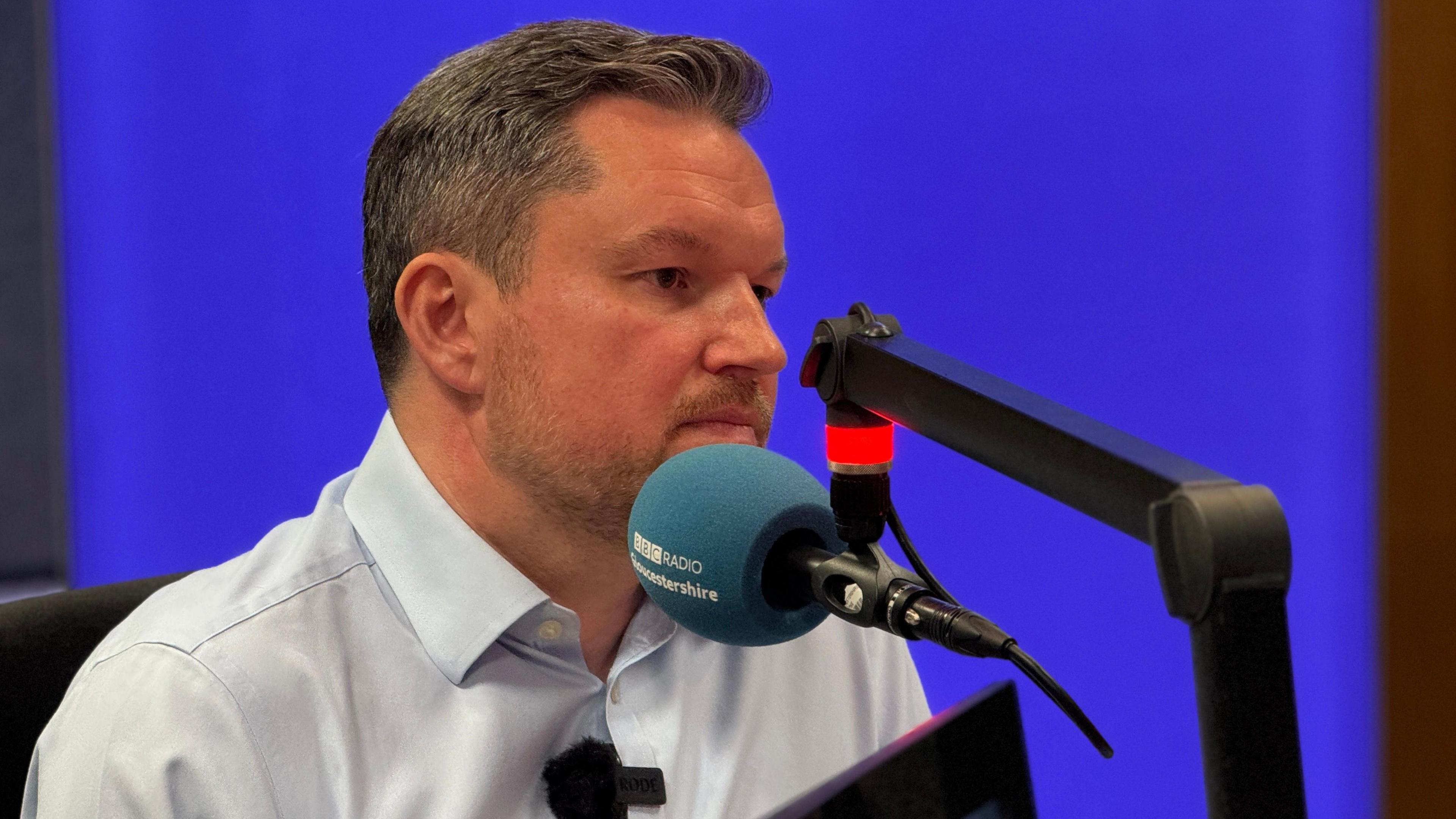
Mr McNamara said he is "keen" to stick to the NHS' national pay framework for "fairness and consistency"
UNISON said phlebotomists have been "wrongly placed on the lowest pay scale in the NHS", and perform "more complex tasks, usually associated with the higher NHS Band 3".
Ms Hayhurst said she and her colleagues "love" their jobs, but "it has to be at a proper rate of pay".
"Throughout this process, one of our chief exec's stances has been, 'The rest of the country are paying Band 2 to their phlebotomists' and he's absolutely right, there are many trusts who are still paying Band 2," she said.
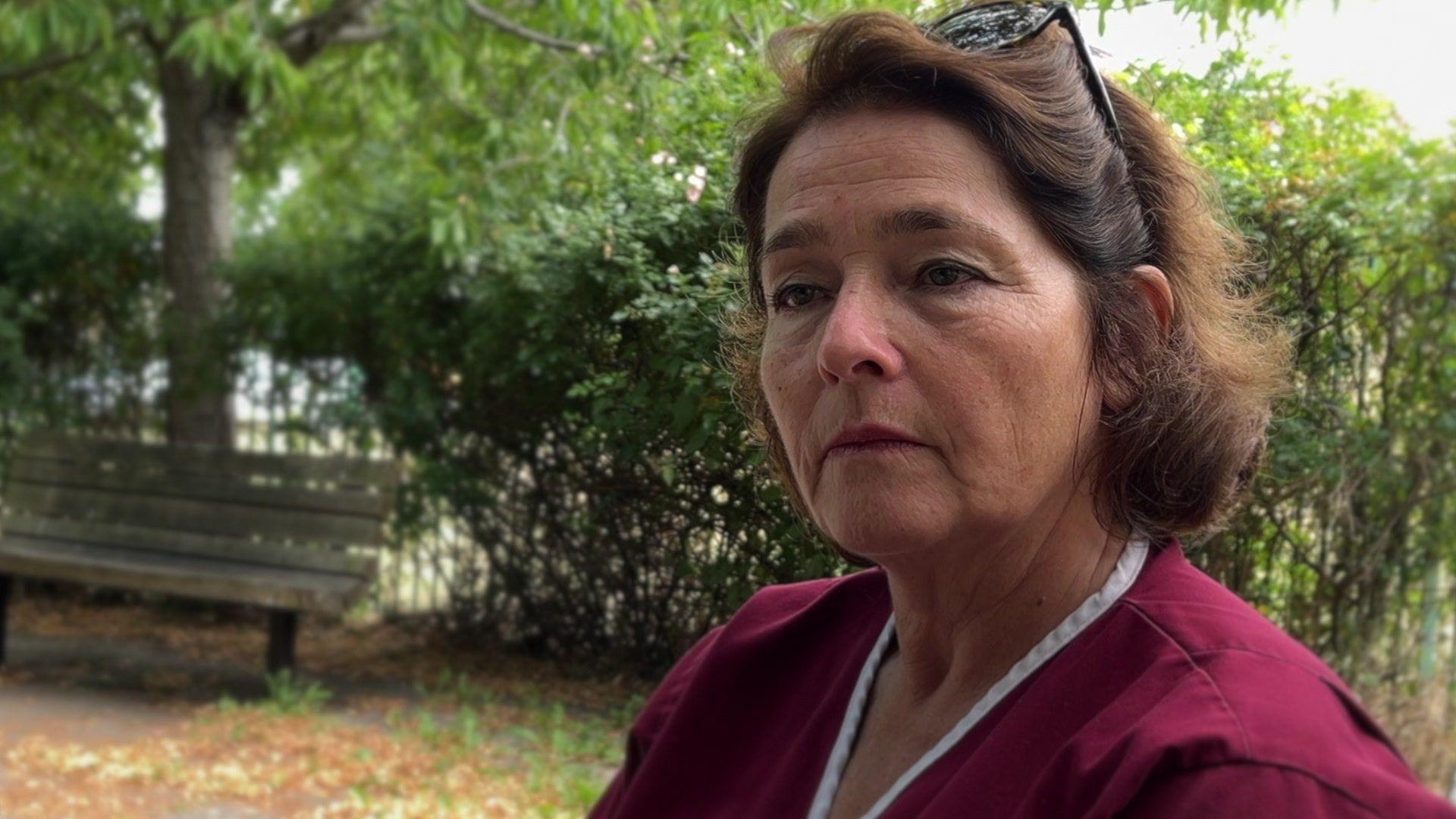
Caroline Hayhurst said she and her fellow striking colleagues hope to bring about change
"There are others that have addressed the issue about the banding of their phlebotomists since we came out on strike and they have already changed it without their phlebotomists having to unionise," Ms Hayhurst added.
"In order to bring about change, sometimes you have to challenge, and that's what we're doing."
Get in touch
Tell us which stories we should cover in Gloucestershire
Follow BBC Gloucestershire on Facebook, external, X, external and Instagram, external. Send your story ideas to us on email or via WhatsApp on 0800 313 4630.
Related topics
- Published30 April
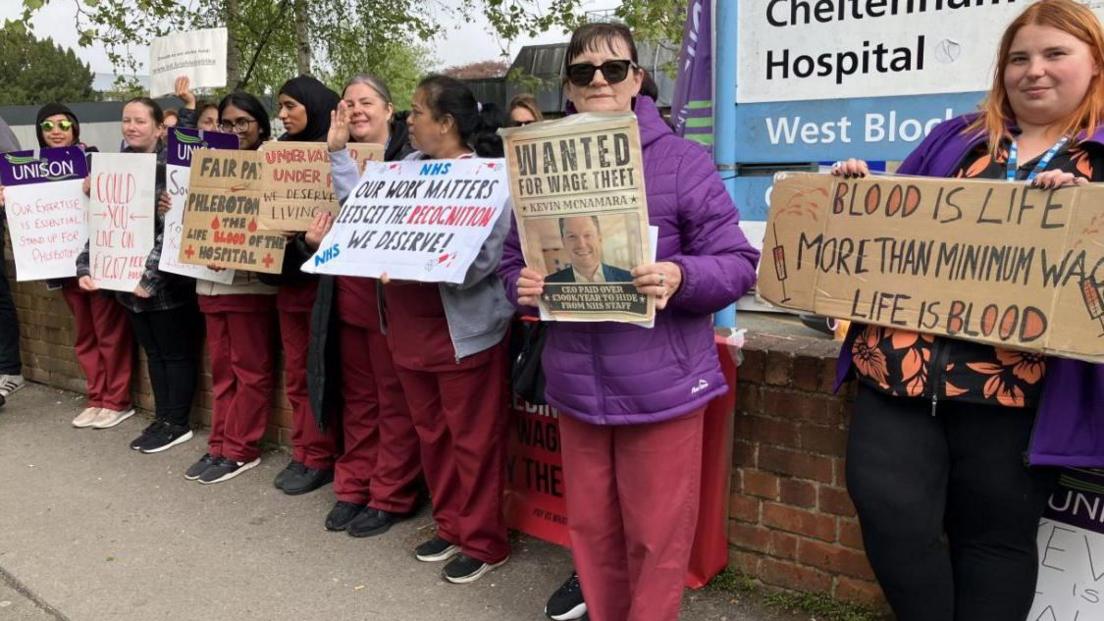
- Published4 June
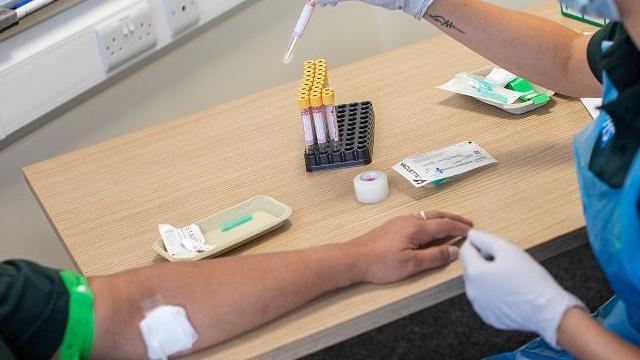
- Published21 April
